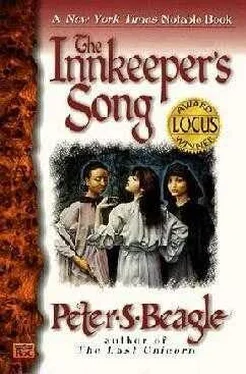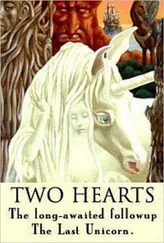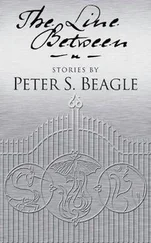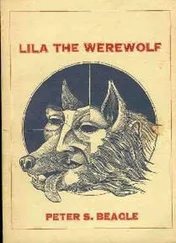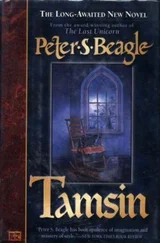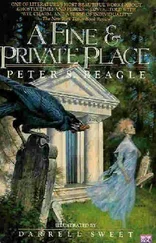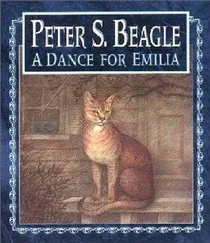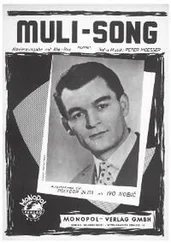Peter Beagle - Innkeeper's Song
Здесь есть возможность читать онлайн «Peter Beagle - Innkeeper's Song» весь текст электронной книги совершенно бесплатно (целиком полную версию без сокращений). В некоторых случаях можно слушать аудио, скачать через торрент в формате fb2 и присутствует краткое содержание. Год выпуска: 1993, ISBN: 1993, Издательство: ROC, Жанр: Фэнтези, на английском языке. Описание произведения, (предисловие) а так же отзывы посетителей доступны на портале библиотеки ЛибКат.
- Название:Innkeeper's Song
- Автор:
- Издательство:ROC
- Жанр:
- Год:1993
- ISBN:0-451-45288-7
- Рейтинг книги:5 / 5. Голосов: 1
-
Избранное:Добавить в избранное
- Отзывы:
-
Ваша оценка:
- 100
- 1
- 2
- 3
- 4
- 5
Innkeeper's Song: краткое содержание, описание и аннотация
Предлагаем к чтению аннотацию, описание, краткое содержание или предисловие (зависит от того, что написал сам автор книги «Innkeeper's Song»). Если вы не нашли необходимую информацию о книге — напишите в комментариях, мы постараемся отыскать её.
Innkeeper's Song — читать онлайн бесплатно полную книгу (весь текст) целиком
Ниже представлен текст книги, разбитый по страницам. Система сохранения места последней прочитанной страницы, позволяет с удобством читать онлайн бесплатно книгу «Innkeeper's Song», без необходимости каждый раз заново искать на чём Вы остановились. Поставьте закладку, и сможете в любой момент перейти на страницу, на которой закончили чтение.
Интервал:
Закладка:

INNKEEPER’S SONG
Peter S. Beagle
FOR PADMA HEJMADI
at last, and for always.
If we were simply friends,
colleagues sharing an art, a language,
a country sketched on restaurant tablecloths,
dayenu —it would have been enough— dayenu
But that we are truly married
is all I know of grace.
“There came three ladies at sundown:
one was as brown as bread is brown,
one was black, with a sailor’s sway,
and one was pale as the moon by day.
The white one wore an emerald ring,
the brown led a fox on a silver string,
and the black one carried a rosewood cane
with a sword inside, for I saw it plain.
They took my own room,they barred the door,
they sang songs I never had heard before.
My cheese and mutton they did destroy,
and they called for wine, and the stable boy.
And once they quarreled and twice they cried—
Their laughter blazed through the countryside,
The ceiling shook and the plaster flew,
and the fox ate my pigeons, all but two.
They rode away with the morning sun,
the white like a queen, the black like a nun,
and the brown one singing with scarlet joy,
and I’ll have to get a new stable boy.”
— The Innkeeper’s Song
PROLOGUE
Once there was a village on a river in a southern country. The people who lived there grew corn and potatoes and a kind of blue-green cabbage, and a tawny climbing fruit that tasted better than it looked. All the roofs leaked in the rainy season—some more than others—and most of the children were lean, though the cows and pigs were not, but no one went very hungry in that village. There was a baker as well as a miller, which was a convenience, and just enough leisure time to inspire enough disagreement to produce two separate churches. And the bark of a certain tree, which grew only in that region, broke fevers when steeped into tea, and could be shaved and pounded to make a dye like green shadows.
In the village there were two children, a boy and a girl, born just hours apart, who grew up loving each other and were promised to marry in the spring of their eighteenth year. But the rains were long that year, and the spring was late in coming, and there was even ice on the river, which was a thing that only grandparents could recall. So when the warm weather came at last, the two lovers walked out on the little bridge below the mill, where they had not gone for almost half a year. The afternoon sun made them blink and shiver, and they talked about weaving, which was the boy’s trade, and about who would not be invited to their wedding.
The girl fell into the river that day. The winter rains had rotted a long stretch of the railing where she leaned, laughing, and it crumpled under her weight and the water lunged up to her. She had time to catch her breath, but no time to scream.
Few in the village could swim, but the boy could. He was in the water before her head came to the surface, and for one moment her arm was around him, his face one last time pressed breathlessly against hers. Then a tumbling log took him away from her, and when he gained the shore she was gone. The river had swallowed her as easily as it had the little stones they had been skipping from the bridge, a life ago.
Every soul in the village turned out to hunt for her. The men took their dugouts and coracles and poled slowly back and forth across the river all that day, like sad dragonflies. The women toiled along both banks with fish nets, and all but the youngest children splashed in the shallows, chanting the rhymes all of them knew to make a drowned body float to shore. But they never found her, and when the night came they went back to their homes.
The boy stayed by the river, too numb with grieving to notice the cold, too blind with tears to know that it was too dark to see. He wept until there was nothing left of him but whimpers and twitches and a tiny, questioning sound that continued even after he finally fell asleep in the rough embrace of tree roots. He wanted to die, and indeed, weak and wet as a newborn in the night breeze, he might have had his wish before morning. But then the moon rose, and the singing began.
To this day in that village, old men and women whose greatest grandparents were warm in their cradles on that night will speak of that singing as though they themselves had wakened to the song. There was no one in the village who did not wake, no one who did not come wondering to the door—though few dared step beyond—but it is always said that each heard different music from a different quarter. The cobbler’s son was the first to wake, by all accounts, dreamily certain that the hides of two marsh-goats his father had hung and scraped the day before were singing bitterly beautiful lullabies in the tanning shed. He shook the old man, who leaped up swearing that he heard the voices of his dead wife and his brother cursing him by turns like soldiers under his own window. On a hillside above the town, a shepherd roused, not to the roar of a charging sheknath , but to mocking airs of rebellion among his flock; the baker woke, not to a sound at all, but with a sweet aroma, such as his earthen ovens had never known, in his nostrils. The blacksmith, who never slept, thought he heard the terrible Moon Hunters coming for him on their pig-snouted horses, crying his name in the voices of hungry babies; while the weaver who was the young man’s teacher dreamed a pattern she had never imagined before and walked, still sleeping, to her loom, where she wove until dawn, smiling with her eyes closed. It is also said that children too young to speak sat up in their cradles, crying out longingly in unknown tongues; that milkmaids and goosegirls hurried to meet the lovers they believed were calling them in the grape arbors, and that the silent marketplace was crowded with clumsy, grizzled badgers dancing round and round on their hind legs. Stars were seen on that night that have never been seen again, as everyone who was not there remembers.
And the boy? What about the boy, crying in his cold sleep by the river? Why, he came awake with his dead love’s laughter teasing and soothing him, so near that his cheek was still warm with her breath when he sat up. And what he saw, as no one else was fool enough to see, a black woman on a horse. The horse was standing in the river, up to its hocks in racing snow-water and not pleased about it, but the black woman held it motionless without effort. The boy was close enough to see that she was dressed as the fierce men of the southwestern hill country do, in shirt and leggings of rough leather, meant to surprise a sword with its stiff resistance. Yet she carried no weapon herself, save for a walking stick slung at her saddlebow. Her face was wide and high at the cheekbones, narrow at the chin, and her eyes were as golden as the moonlight on the water, and she was singing all by herself. That much is told of her; but what she truly sang, and what her true voice sounded like, even the folk of that village will never quite venture to say. Not the grown ones, at any rate; the children at their games still chant what they call The Black Woman’s Rhyme , but they get smacked if their parents hear them. It runs so—
Dark to daylight, stone to sky ,
caterpillar, butterfly ,
sleeping, waking, buried, blind ,
come and seek me, come and find …
Nonsense now, of course, but perhaps not nonsense then, for the boy watching saw the water where her horse stood grow flat and still as a midsummer frog-pond, with the moon floating like a great calm lily pad in that churning river. And presently out of that second moon his love rose up, dead and drowned and standing before the black woman with her hair dripping thickly and her wide blind eyes full of the river’s darkness. The black woman never stopped singing, but she leaned down from the saddle, taking a ring from her forefinger and setting it on that of his dead love. And when she did that, the drowned girl’s eyes came wondering awake, and the boy knew her and called to her. She never heeded, but held up her arms to the black woman, who lifted her up behind her onto the horse. The boy called and called—there is today, in that part of the country, a small brown-and-green bird with his name and a desperate nighttime cry that sounds almost like “
Читать дальшеИнтервал:
Закладка:
Похожие книги на «Innkeeper's Song»
Представляем Вашему вниманию похожие книги на «Innkeeper's Song» списком для выбора. Мы отобрали схожую по названию и смыслу литературу в надежде предоставить читателям больше вариантов отыскать новые, интересные, ещё непрочитанные произведения.
Обсуждение, отзывы о книге «Innkeeper's Song» и просто собственные мнения читателей. Оставьте ваши комментарии, напишите, что Вы думаете о произведении, его смысле или главных героях. Укажите что конкретно понравилось, а что нет, и почему Вы так считаете.
